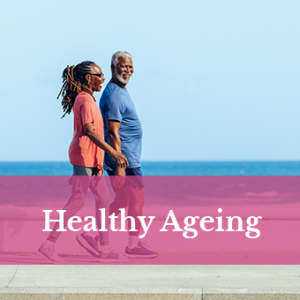
Assessment of Intrinsic Capacity and Demographic Characteristics of Older Adults in Peri-Urban Luanda Using the ICOPE Framework
Presenter(s):
Rita de Santa Bárbara; Benaquenico Luanda; Silvana Rocha da Silveira, Universidade Privada de Angola, Angola
Abstract
Introduction: In low-resource settings like Angola, population aging is rapidly increasing the demand for structured strategies to identify and manage functional decline among older adults. The Integrated Care for Older People (ICOPE) framework from the World Health Organization offers an evidence-based model to assess intrinsic capacity and guide community-level health actions.
Objective:To analyze intrinsic capacities and demographic characteristics of older adults living in peri-urban areas of Luanda, applying the ICOPE screening tool.
Methods:A descriptive cross-sectional study was conducted with 18 individuals aged 60 to 93 years (mean age = 73.2; SD = 7.3). Six domains were evaluated: locomotor function, vision, hearing, nutrition, cognition, and psychological well-being. Statistical analysis included descriptive statistics (frequencies, means, 95% CI), chi-square tests to examine associations between gender and functional decline, and simple linear regression to explore the relationship between age and total number of impairments (p 0.05), and the regression model showed no significant correlation between age and number of impairments (R² = 0.12; p = 0.24).
Discussion:Compared to similar assessments in countries such as France, Brazil, and Hong Kong, the Angolan data revealed higher prevalence of impairments, likely influenced by socioeconomic vulnerabilities and reduced access to integrated care services.
Conclusion:Applying the ICOPE approach in peri-urban Angola provided critical insights into functional health among older adults. These findings emphasize the importance of integrating nutritional, psychological, and physical support into public health strategies to promote healthy aging and preserve autonomy in older populations.
Keywords: Intrinsic Capacity, Functional Health, ICOPE
Bio(s):
Doctoral candidate in Rehabilitation Sciences, university professor, and current Head of the Department of Physiotherapy at the Universidade Privada de Angola. She is engaged in the training of physiotherapists and in the development of academic and clinical programs focused on the care of critically ill patients, functional rehabilitation, and elderly care. She leads projects aligned with the United Nations Decade of Healthy Ageing (2021–2030), emphasizing the promotion of functionality, the prevention of disabilities, and the implementation of integrated, person-centered care.
Her areas of interest include respiratory physiotherapy, functional ageing, multidimensional assessment, intensive care rehabilitation, interprofessional education, and cross-cultural validation of clinical instruments. She coordinates research aimed at adapting assessment tools to the African context and fosters interdisciplinary investigations tailored to the specific needs of the elderly population
